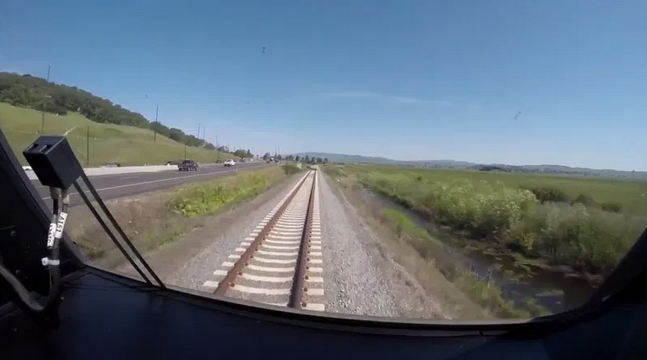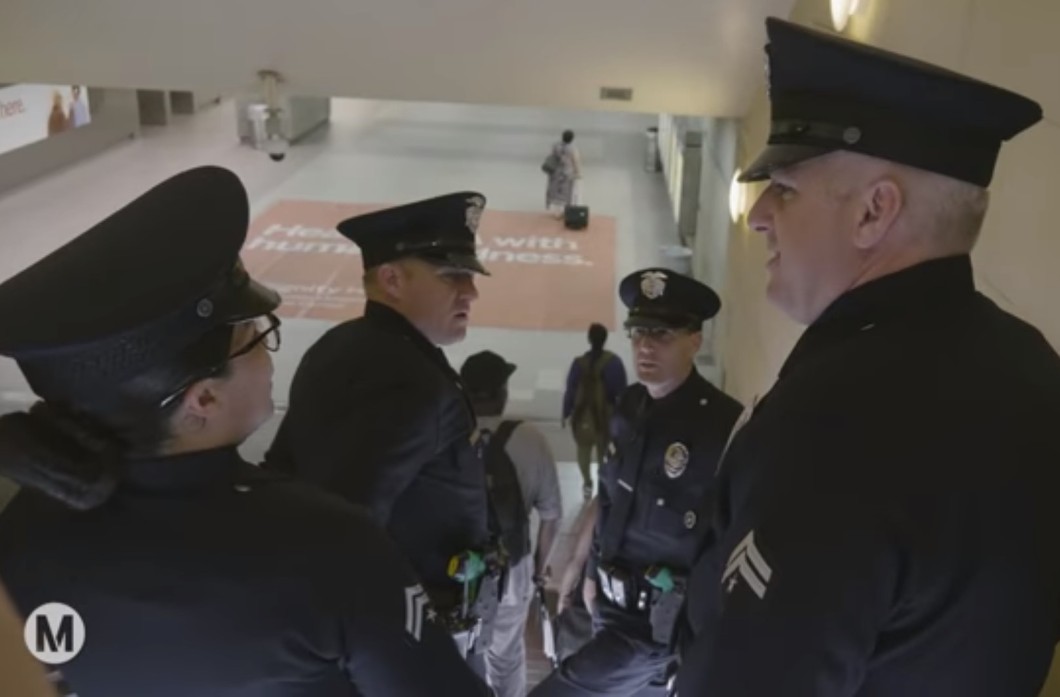Note: GJEL Accident Attorneys regularly sponsors coverage on Streetsblog San Francisco and Streetsblog California. Unless noted in the story, GJEL Accident Attorneys is not consulted for the content or editorial direction of the sponsored content.
Amidst the tumult of the Democrat primaries, two transit measures failed in the Bay Area on Tuesday.
SMART train funding fails
Measure I, which would have extended a ¼ cent sales tax to fund an extension of the SMART train and more service between Marin and Sonoma, was not approved. A “yes” vote on I would have extended the tax to 2059. Instead, it will cease in nine years. The Marin Independent Journal reports that "With 100 percent of precincts counted, election results from Marin show 53.51 percent of Marin voters in favor and 46.49 percent opposed. In Sonoma, 49.88 percent voted yes and 50.12 percent were opposed." So, of course, in the California universe, that means it failed by a wide margin in both counties, since it needed two-thirds to extend the tax.
Advocate and Streetsblog contributor Marcel Moran summed it up nicely:
Not the contest most people were watching, but Marin and Sonoma counties did not give the SMART train the 2/3 approval it needed to extend it's 1/4 cent sales tax. Incredibly short-sighted and a huge blow to that young system.
— Marcel Moran (@marcelemoran) March 4, 2020
The Marin County Bicycle Coalition, meanwhile, opted not to take a position on the tax extension due to delays in the accompanying bike path, which is supposed to run and connect along the train's right-of-way. On the one hand, it's hard to argue with the MCBC's reluctant decision to not endorse, given the huge gaps in the bike path and SMART's apparent apathy about completing it. On the other, SMART trains have great bike racks inside the trains and bike+train is now a great way to get around Marin and Sonoma--or it would be, if not for the lack of frequency in train service that "I" would have gone a long way to improve.
Contra Costa Measure 'J' also fails
This measure would have provided $103 million in local transportation funding annually for 35 years. The measure, supported by Bike East Bay and TransForm, and would have provided more:
...frequency, reliability, accessibility, cleanliness, and safety of buses, ferries, and BART; Improve air quality; Repave roads... [via ] a ½ ¢ sales tax, providing an estimated $103,000,000 for local transportation annually for 35 years that the State cannot take, requiring fiscal accountability, and funds directly benefiting Contra Costa County residents
Only 51% for yes on #MeasureJ so far with just absentee ballots reporting. That’s not a good sign, we need 2/3 to win. https://t.co/0v9Z5u3TxJ
— TransForm (@TransForm_Alert) March 4, 2020
Unlike Measure X, a 2016 attempt to pass a transportation tax in Contra Costa, this measure had the endorsement of environmental groups and was more geared towards transit over road building. And yet it still failed, with only around 49 percent of voters casting a 'yes' once all votes were tallied.
"What we heard from voters was that they do care about transportation, but they are tired of sales taxes," wrote TransForm's Hayley Currier. "It’s time to think about a new way to fund the public transportation we so desperately need. It’s time to ask some of the large corporations that profit off of our region to pay their fair share."
Streetsblog has to wonder how this bodes for the upcoming $100 billion regional 'Faster Bay Area' push, which would greatly expand transit throughout the Bay Area.
"We, as transit advocates and as a region, have our work cut out for us to build public support for funding public transit. When we don't invest in public transit, we're committing ourselves to more cars and more roads," wrote the San Francisco Transit Rider's Cat Carter, in an email to Streetsblog. "We're committing ourselves to climate change and reducing people's mobility in the region. We can't address the region's inequities nor climate challenges without investing in public transit."
"I hate to see transit projects and services get hung up for years securing funding; we need to find ways to expand and improve effective transit quicker and do so across local agency boundaries to make the regional system more seamless," wrote Livable City's Tom Radulovich, also in an email. "The region and the state can and should do more to stabilize, rationalize, and expand funding for transit services and infrastructure. The right ‘mega-measure’ could help enormously."
Please post your thoughts on that (and other aspects of the election as it relates to the safe and livable streets movement) in the comments section below.






